SURA 2021 Student Blog
Get all our news
Each summer since 1998, the Institute for Policy Research (IPR) has run the Summer Undergraduate Research Assistants (SURA) program, which gives undergraduate students first-hand experience in the conceptualization and conduct of policy-relevant social science research. This year, SURA students are sharing their research experience from their own perspective, and we will feature students discussing the research projects they are part of throughout the summer.
Joe Choi | Elisabeth Betts | Sarah Germer | Jack McNally | Cindy Shou | Kendall Kubis | Angie Li | Sarah Jong
Joe Choi: Minimizing Health Disparities for SGM and BIPOC Individuals
 Joe Choi is working with epidemiologist and IPR associate Gregory Phillips II on the Evaluation, Data Integration, and Technical Assistance (EDIT) team at Northwestern University's Institute for Sexual and Gender Minority Health and Wellbeing (ISGMH).
Joe Choi is working with epidemiologist and IPR associate Gregory Phillips II on the Evaluation, Data Integration, and Technical Assistance (EDIT) team at Northwestern University's Institute for Sexual and Gender Minority Health and Wellbeing (ISGMH).
ISGMH is a research institute that focuses primarily on identifying health disparities in sexual and gender minority (SGM) populations while also providing evaluation support to those communities. I am working as a research assistant primarily on two projects at ISGMH this summer.
The first project focuses on identifying the impacts of COVID-19 on young SGM populations. As the pandemic continues in the U.S., I believe it is critical to examine health disparities that arise for SGM youth and young adults. By investigating these disparities, health officials and community organizers can minimize these gaps in their pandemic responses.
My second project is the Youth Risk Behavior Survey (YRBS) project, which focuses on using data from the Centers for Disease Control and Prevention (CDC) to identify differences in a variety of health indicators. One discovery that shocked me while observing new data was the uptick in smoking among youth across many demographics. This highlights the importance of these social science research projects as they can give direction at the national and local levels to improve the health of America’s youth.
In general, this experience so far has illuminated the importance of approaching healthcare and public health with a focus on the needs of vulnerable communities. The data show that healthcare can often perpetuate harms and stigmas associated with these intersectional identities, resulting in poorer physical and mental health. Pandemics or other health crises often expose these differences, and it is critical for public health policies to be approached through this lens.
Joe Choi (he/him/his) is a rising junior from Madison, Wisconsin, but grew up in the suburbs of Chicago. He is pursuing a degree in neuroscience with a minor in psychology and is primarily interested in identifying health disparities that are unique to SGM and BIPOC individuals. After Northwestern, he is considering a career in healthcare.
Elisabeth Betts: Examining Racial Differences in Disciplinary Action
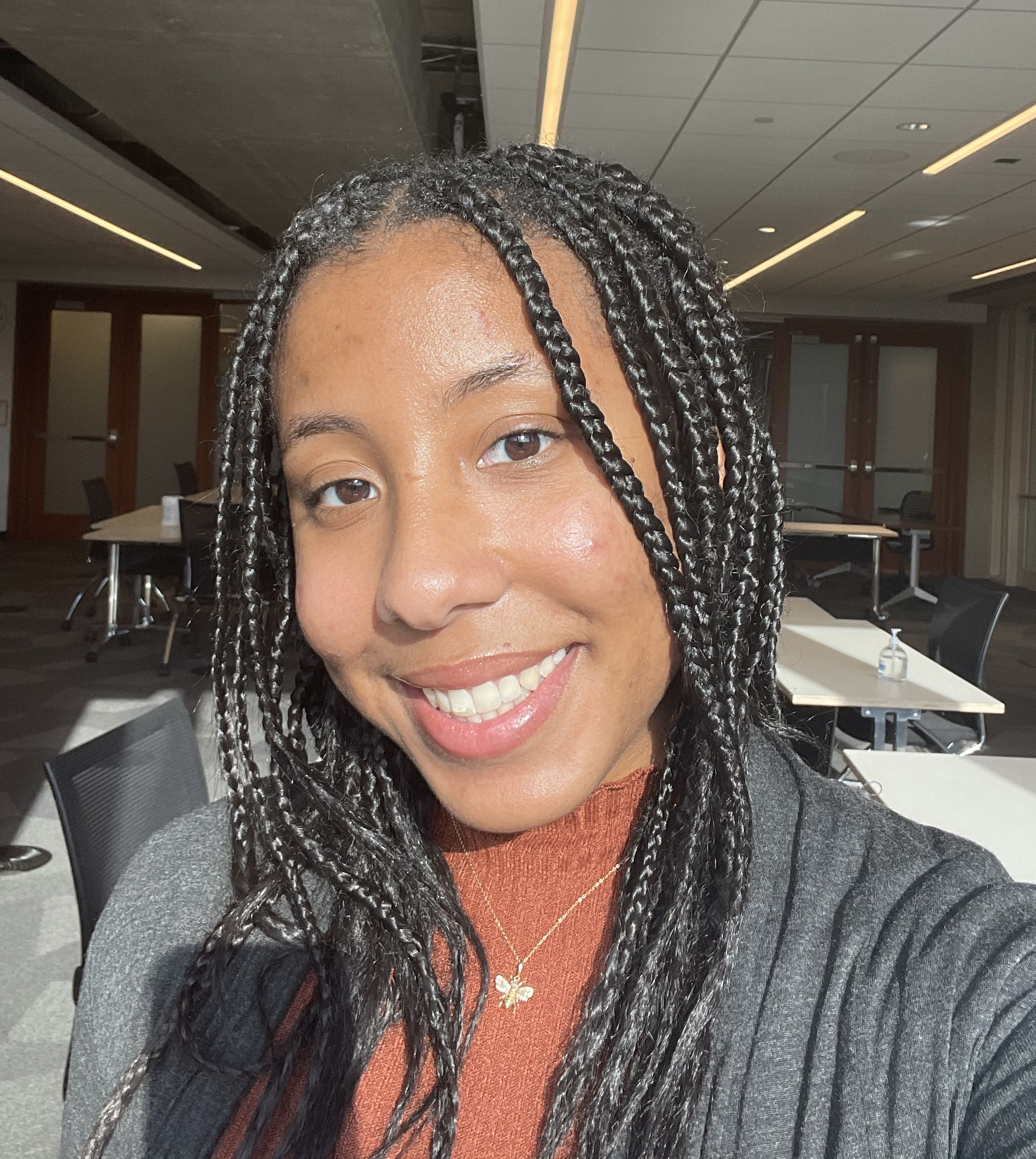 Elisabeth Betts is working with IPR education sociologist Simone Ispa-Landa and analyzing discrepancies in disciplinary action between Black and White high school students.
Elisabeth Betts is working with IPR education sociologist Simone Ispa-Landa and analyzing discrepancies in disciplinary action between Black and White high school students.
I am working with Dr. Simone Ispa-Landa on “The Limits of Top-Down Efforts.” This research project intends to address differences in disciplinary action in high school between Black and White students. Though we are focusing on one high school, this project can speak volumes to a problem that exists virtually everywhere, especially in predominately White high schools, which is why I was interested in being her research assistant.
In high school, I experienced a fair share of microaggressions and racist incidents that negatively impacted me and other Black peers. Although this is a topic that is familiar to many, I never considered the position of administrators when I would lament about discrepancies in disciplinary action. As such, Dr. Ispa-Landa’s project enticed me immediately, as I never considered the potential limits of top-down efforts, or in other words, the fact that teachers and social workers believe these reform efforts are not including their concerns.
Thus far, this project has taught me interview skills that I will carry with me into my future studies at Medill. Also, it has enabled me, in my capacity as a student and research assistant, to help solve an issue that I am passionate about and that has impacted me personally.
Elisabeth Betts is a rising sophomore from Bowie, Maryland. She is double majoring in journalism and political science. Outside of research, she holds leadership roles in organizations including Northwestern News Network, For Members Only, and Womxn in Law, and plans to pursue a career in law. Follow her on Twitter @esbetts.
Sarah Germer: Investigating and Seeking to Improve Health Equity
 Sarah Germer is working with IPR health psychologist Edith Chen in the Foundations of Health Research Center to explore the effects of mentoring on the physical health of college-aged mentors and young mentees, and in a second study, to explore how the life experiences that African American students have affect their physical health.
Sarah Germer is working with IPR health psychologist Edith Chen in the Foundations of Health Research Center to explore the effects of mentoring on the physical health of college-aged mentors and young mentees, and in a second study, to explore how the life experiences that African American students have affect their physical health.
This summer, I am assisting Dr. Edith Chen, co-director of the Foundations of Health Research Center, with two studies: the Mentoring and Health Study (MHS) and On the Rise (OTR). Both aim to shed light on the psychological and biological mechanisms that contribute to health disparities and inform policy decisions that can reduce health inequities.
MHS investigates the physical health effects of a mentoring program on college-aged student mentors and Chicago Public School student mentees while also examining the psychosocial mechanisms that might explain such effects. OTR seeks to understand how the experiences of African American adolescents relate to their physical health, academic performance, and resilience over time.
The relevance of these projects continues to grow, especially as the COVID-19 pandemic has illuminated existing disparities within the U.S. health system. Ultimately, this research seeks to understand how health disparities related to socioeconomic status or race can be minimized or eliminated.
Because these are 5-year studies, it is too early to report any large-scale study findings. Nonetheless, I have learned many new skills related to data collection, interview coding, and sample processing. I have come to appreciate just how necessary teamwork and organization are to this work. When dealing with large numbers of study participants, including young participants, data collection and processing can be more complicated than it may seem.
Sarah Germer is a rising junior from Rochester, Minnesota. She is majoring in biological sciences and psychology while on the pre-med track. She hopes to attend medical school and pursue a career in medicine and medical research. Her passion for improving healthcare equity and distribution while also finding ways to improve health drove her to join the Foundations of Health Research Center.
Jack McNally: Applying Statistics in a Meaningful Way
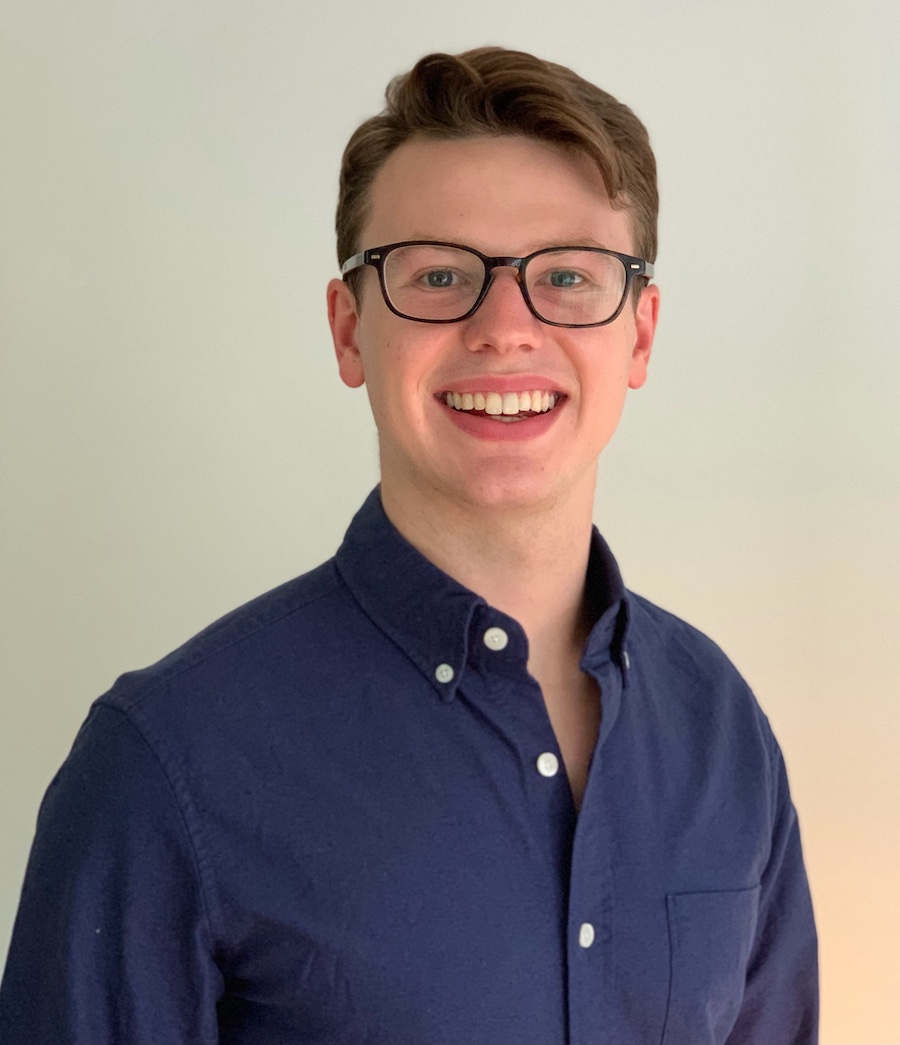 Jack McNally is working with IPR statistician Elizabeth Tipton and IPR research associate Chris Klager in the Statistics for Evidence-Based Policy and Practice (STEPP) Center on researching the citation network efficacy and effectiveness studies funded by the Institute of Education Sciences, including where education research gets published and who the work reaches.
Jack McNally is working with IPR statistician Elizabeth Tipton and IPR research associate Chris Klager in the Statistics for Evidence-Based Policy and Practice (STEPP) Center on researching the citation network efficacy and effectiveness studies funded by the Institute of Education Sciences, including where education research gets published and who the work reaches.
The STEPP Center is a research lab at Northwestern University that brings together statisticians and policymakers to guide social science policy. This summer, I am working with the lab’s co-director Dr. Elizabeth Tipton and research associate Dr. Chris Klager to understand the network of research funded by the Institute of Education Sciences (IES) over the past 19 years. IES is a part of the U.S. Department of Education and a leading source for independent education research, evaluation, and statistics.
The project aims to identify where research is published and which audiences it reaches. With this information, we can understand why teachers, educators, and policymakers are not implementing research findings and if new research is reaching them.
In working with the studies IES funded, I was surprised to see the scope of research being conducted. Principal investigators have published papers on everything from the impact of teacher stress levels on their students’ learning to the effectiveness of specific curricula.
The scope and quantity of work funded by just one agency have shown me the desire researchers have to improve education in the U.S. as well as the importance of their role in working towards achieving this goal.
Jack McNally is a rising junior from Sleepy Hollow, New York. He is majoring in psychology and double minoring in Spanish and data science. His desire to apply his knowledge of statistics in a meaningful way outside the classroom led him to research with Dr. Tipton and Dr. Klager.
Cindy Shou: Learning How Stress Impacts Adolescents
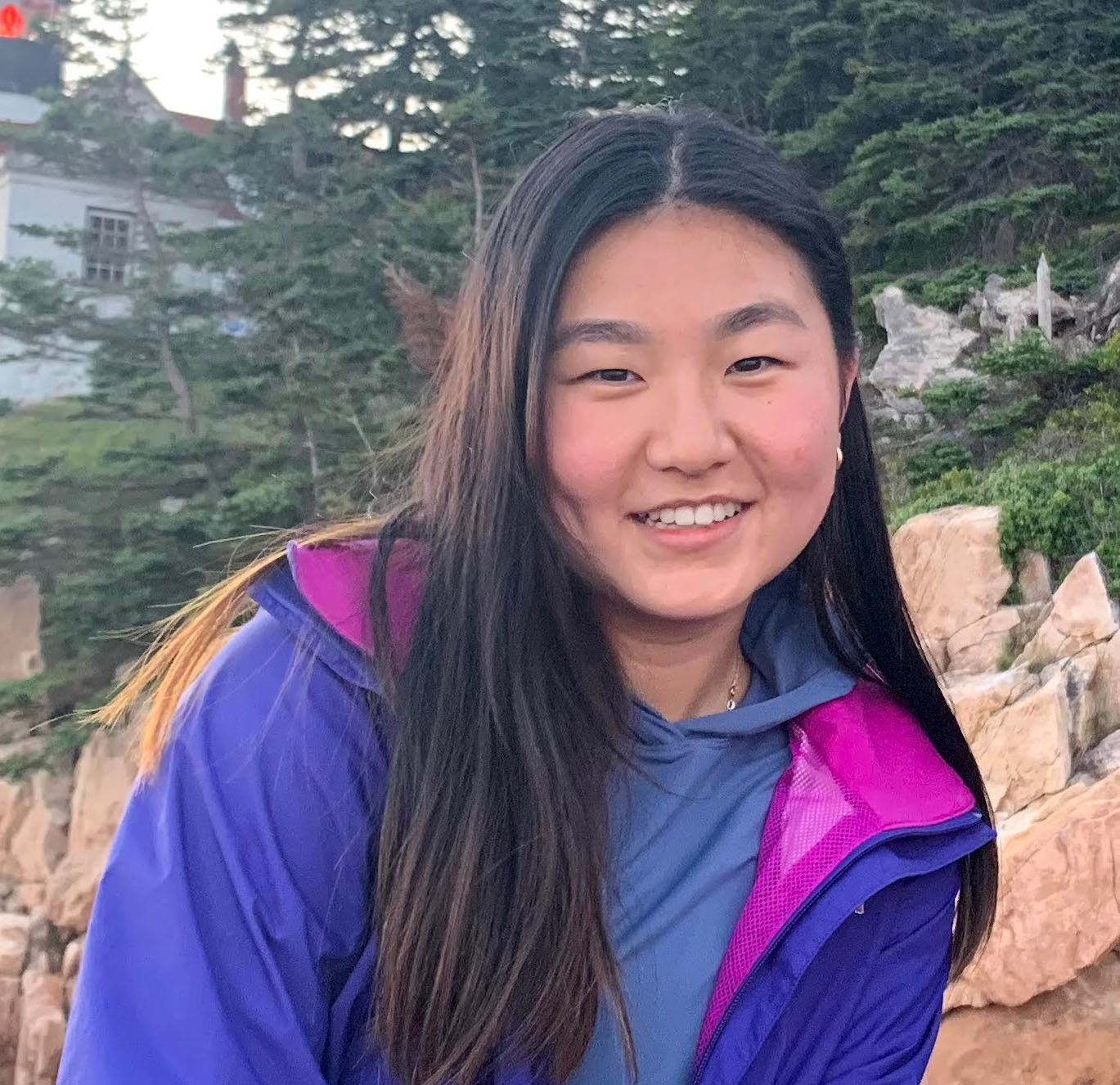 Cindy Shou is working with IPR developmental psychobiologist Emma Adam and the research team at Contexts of Adolescent Stress and Thriving (COAST) Lab.
Cindy Shou is working with IPR developmental psychobiologist Emma Adam and the research team at Contexts of Adolescent Stress and Thriving (COAST) Lab.
The COAST Lab, led by Dr. Emma Adam, studies the pathways of how stress contributes to poor health and affects behavioral, academic, and emotional development for children and adolescents. This summer, I am helping with an epigenetics literature review and the Biology, Identity, and Opportunity (BIO) study through qualitative coding and data analysis.
This study evaluates an ethnic and racial identity-promoting intervention through surveys, academic outcomes, and biological markers (cortisol samples and sleep quality). High school students participated for four years in the Identity Project Intervention, which encouraged them to reflect on the roles that ethnicity and race, discrimination, and ethnic-racial customs and traditions play in their lives. Additionally, it evaluates biological and cognitive functioning measures while examining how stress, stress hormones, and sleep relate to physical health, emotional health, and performance using data from two high school-based study sites.
More than ever, adolescents face different stressors, from academics to current events to social media. To create successful interventions that will help stress management, a deeper understanding of how stress interacts with different facets of health is crucial.
One of the most interesting things I’ve learned so far is the importance of epigenetics, which studies phenotypic changes that do not alter the DNA sequence. Specifically, I’ve learned that childhood adversity can cause methylation at specific gene sites, potentially increasing the risk of developing mental and physical disorders.
From working with the lab, I have gained a further appreciation of working with qualitative and quantitative data. Qualitative data can give us a bigger picture of how stress can have an impact on adolescents and their perception of it. However, with so many responses, data are most useful when we code it to analyze trends and gain insight into the type of stressors that are most impactful.
Cindy Shou is a rising junior from Baltimore, Maryland, majoring in history and global health. Her passion for better understanding how social determinants affect health outcomes led her to do research at the COAST lab. She hopes to pursue a career in medicine and public health.
Kendall Kubis: Studying Communication Differences to Decrease Autism's Stigmatization
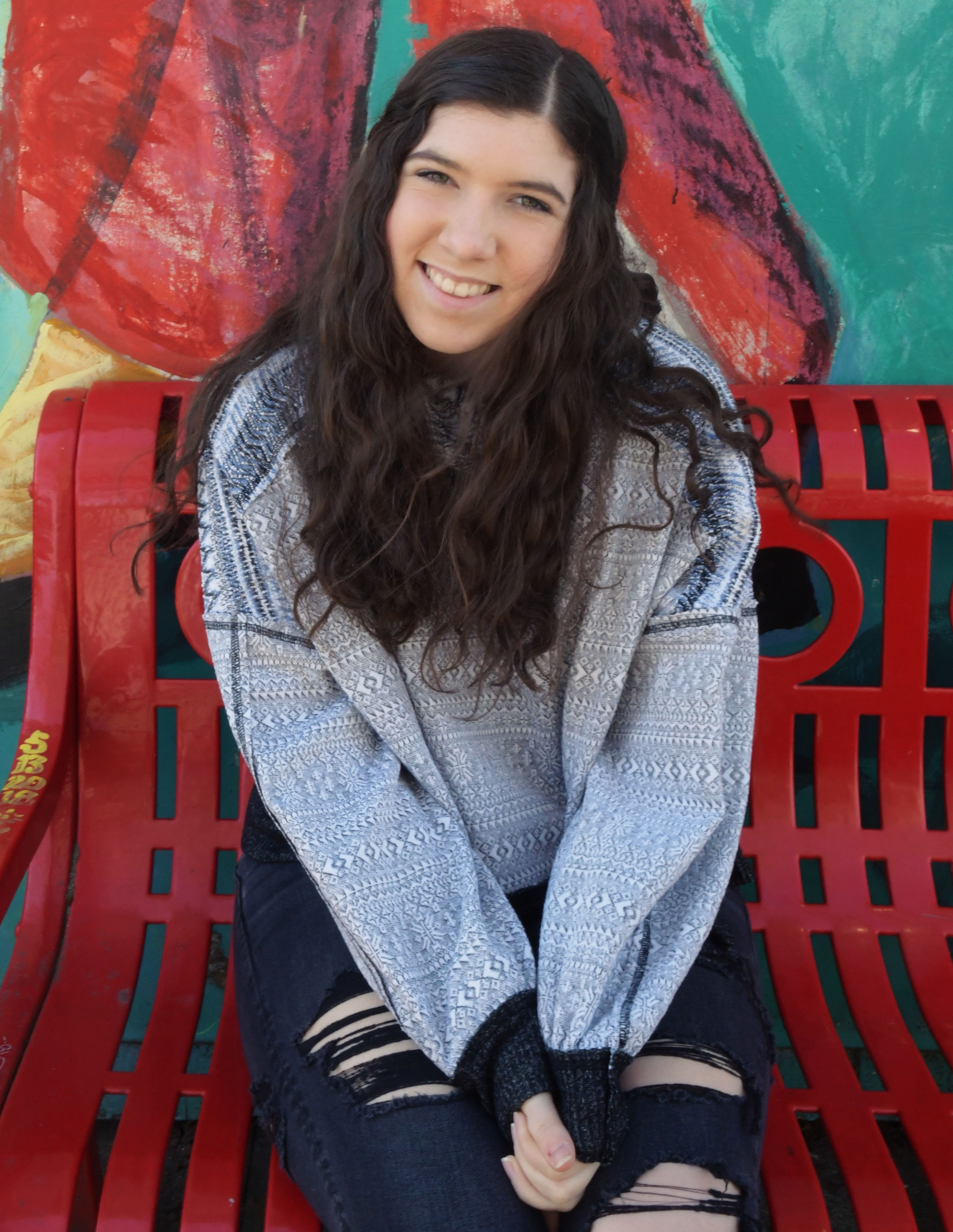 Kendall Kubis is working with IPR associate and developmental psychologist Molly Losh and the research team in the Northwestern Neurodevelopmental Disabilities Lab in the School of Communication.
Kendall Kubis is working with IPR associate and developmental psychologist Molly Losh and the research team in the Northwestern Neurodevelopmental Disabilities Lab in the School of Communication.
This summer, I have been part of the research team in the Neurodevelopmental Disabilities Lab (NDL), supervised by Dr. Molly Losh. NDL researchers study the basis of the language-related features of Autism Spectrum Disorder (ASD), focusing primarily on features of pragmatic (or social) language. Evaluations of prosody, such as the rhythm, rate, and intonation of speech, offer insight into social communication differences exhibited by individuals with autism. Through assessing prosody and other linguistic qualities across generations, the lab can better understand the genetic heritability of traits associated with ASD.
This research carries clinical implications for developing diagnostic tools that identify ASD early and effectively. Furthermore, in a sociolinguistic respect, better understanding of communication differences between neurotypical and individuals with autism may help decrease stigmatization of the autistic community and encourage acceptance, rather than forced integration, in the years to come.
I have been most surprised, thus far, at how much is still unknown about ASD and how much constant reassessment goes into social science research. For example, the Autism Diagnostic Observation Schedule-2 (ADOS-2), one of the primary ASD diagnostic tools, was initially developed based upon a primarily male sample—which may have contributed to the historical underdiagnosis of autistic females. Social science researchers, therefore, bear a responsibility to constantly question previously accepted knowledge to put forth new information that best represents the communities they serve.
Kendall Kubis is a rising junior from Lancaster, Pennsylvania, studying neuroscience, sociology, and human communication sciences and disorders. She hopes to someday attend medical school and work in a clinical setting as a pediatric neurologist or practice rural medicine to combat healthcare shortages in remote areas. Outside of research, she spends her time gardening, reading, and working on embroidery projects.
Angie Li: Investigating a Double Pandemic and Preventing Future Health Problems
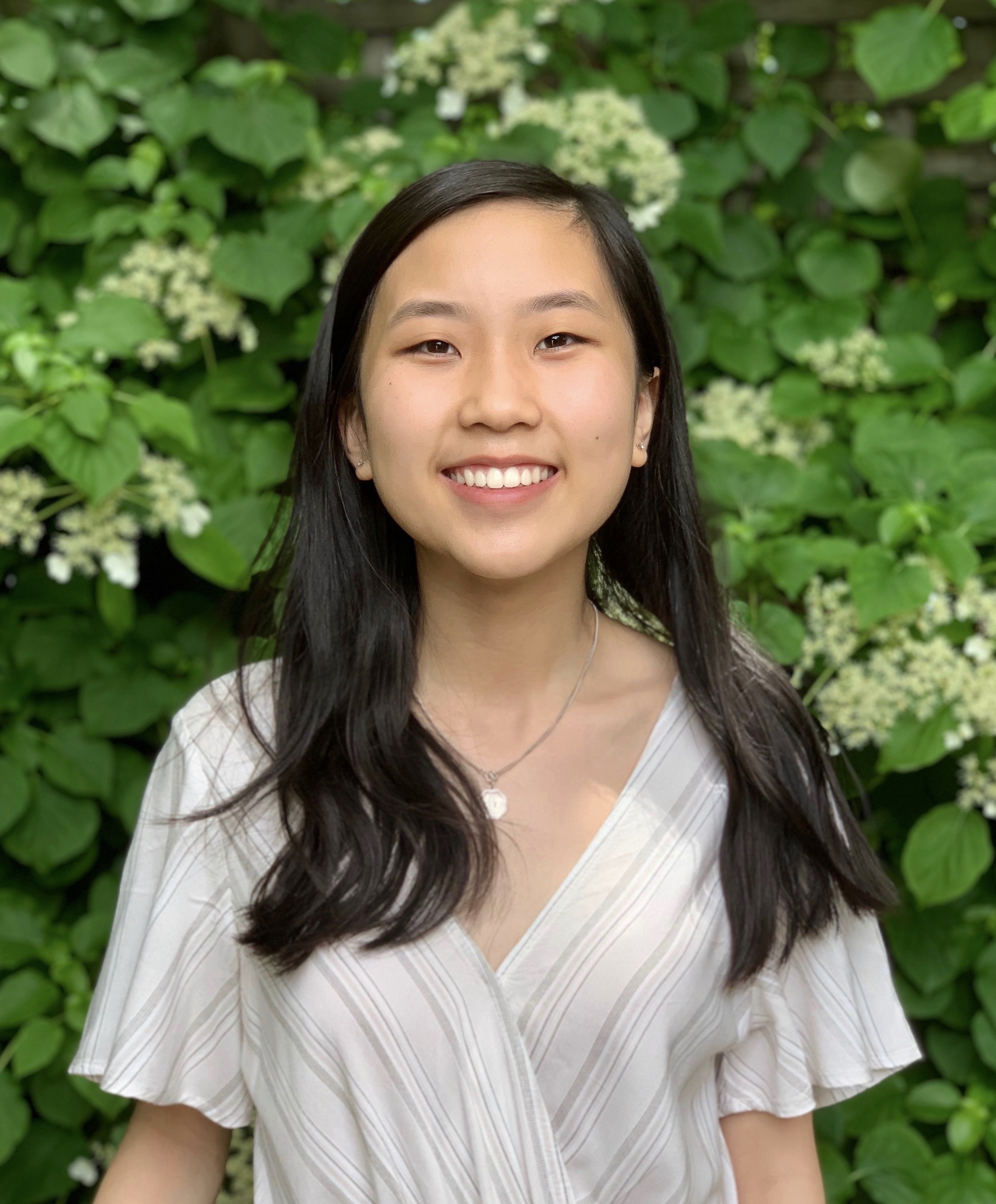 Angie Li is working with IPR associate and pediatrician Dr. Nia Heard-Garris and her research team in the ARISE Health Lab at the Feinberg School of Medicine.
Angie Li is working with IPR associate and pediatrician Dr. Nia Heard-Garris and her research team in the ARISE Health Lab at the Feinberg School of Medicine.
The ARISE (Adversity, Racism, Inequities, Structures, and Empowerment) Health Lab, directed by Dr. Nia Heard-Garris, focuses on investigating how adversity and structural influences impact adolescent health, with the goal of using this information to develop strategies that place the health and wellbeing of adolescents and their families first. As a research assistant, I primarily aid the research team on the Double Pandemic Teen Study and develop the lab’s social media presence.
In 2020, everyone’s thoughts focused on the COVID-19 pandemic, and amid it, racial violence and broken systems that were long ignored were unmasked and brought to the forefront. Now thought of as the “double pandemic” of COVID-19 and racism, this serves as a source of adversity for teens. Thus far, little research has been conducted to understand the short- and long-term effects of this double pandemic on the pediatric population. Adverse Childhood Experiences (ACEs) can have profound impacts on a child’s future health outcomes, and I consider ARISE’s research on the double pandemic crucial in understanding and preventing health issues that may stem from the consequences of these new sources of adversity.
I learned a lot about the importance of understanding how the double pandemic can impact the health outcomes of teens, and one of the most surprising things I’ve learned is the importance of recruitment and establishing ethos. Setting up a research project is often a long and overlooked process, but it is extremely important. Establishing credibility and an online presence requires reviewing materials related to the lab’s main research goals and converting those materials into a digestible format for a larger audience.
I am also learning about the rigor of social science research, in particular, how each step of the research process requires an equal amount of care and effort. Social science research is unpredictable, and adaptability is key. This adaptability is also important when new adversities arise, especially that affect children, such as the double pandemic of racism and COVID-19. We must make changes that will improve the health outcomes of children affected by adversities, and the best way to figure out how is for people to continue conducting rigorous research.
Angie Li is a rising junior from Chicago, majoring in neuroscience and minoring in Asian American Studies and data science. Her desire to understand how race and other social determinants affect people’s health outcomes is what drove her to better understand research. At Northwestern, she is involved in the Asian Pacific American Coalition (APAC), GlobeMed, and Botany and Bees. She also volunteers with Books and Breakfast, which focuses on providing academic and emotional support to Evanston students. In her free time, she enjoys going on walks around the neighborhood and embroidering.
Sarah Jong: Addressing the Causes of Malnutrition with a Participant-Focused Approach
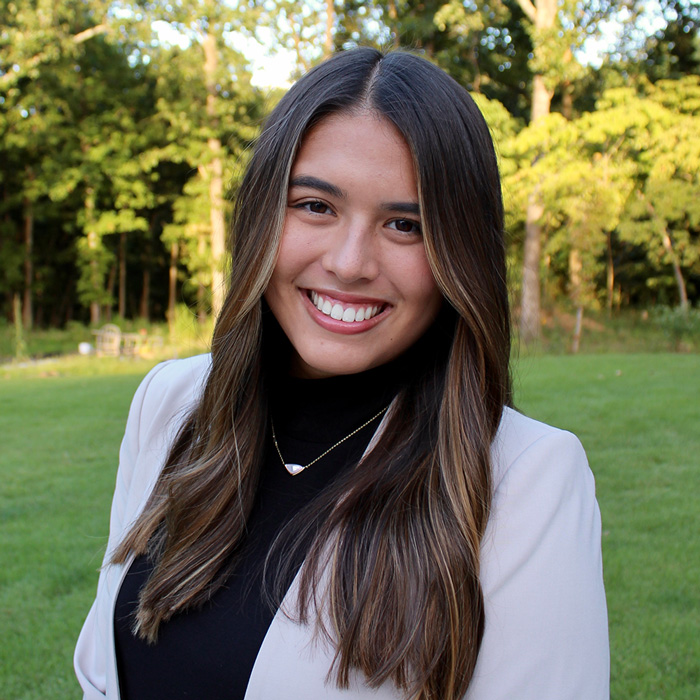 Sarah Jong works with IPR anthropologist Sera Young and Dr. Marianne V. Santoso, a postdoctoral research fellow in anthropology. They are designing a field guide to increase the use of participatory research methods in nutrition and agriculture interventions to make them more effective at reducing malnutrition.
Sarah Jong works with IPR anthropologist Sera Young and Dr. Marianne V. Santoso, a postdoctoral research fellow in anthropology. They are designing a field guide to increase the use of participatory research methods in nutrition and agriculture interventions to make them more effective at reducing malnutrition.
Malnutrition is one of the most significant global and public health issues today, and its prevalence has dramatically increased due to the COVID-19 pandemic. In 2020, 768 million people worldwide faced hunger, and 149 million children under five were malnourished, meaning they were under- or overweight. Nutrition-sensitive agriculture aims to resolve this by addressing various underlying causes of malnutrition, such as food insecurity, gender inequity, and climate change, while also improving food production. This differs from conventional agriculture interventions because attention is paid to food production as well as to what is done with the food after it is produced. However, despite nutrition-sensitive agriculture’s tremendous potential, to date, there has only been disappointingly small observed impacts on malnutrition.
Implementing nutrition-sensitive agricultural interventions differently is one possible way to increase its impact. In fact, there is burgeoning evidence that incorporating a participatory approach into nutrition-sensitive agriculture interventions could be quite powerful. In a participatory approach, participants are considered key partners and are actively involved throughout the design, implementation, and evaluation stages of an intervention. This is in contrast to the more standard approach of simply providing information or resources to participants who are expected to more passively receive this information. A participatory approach benefits both implementers and participants by prioritizing participant-identified concerns, increasing participant buy-in, and developing participant sovereignty, leading to a more sustainable project, and often, better outcomes. This was demonstrated robustly in Malawi with the Soils, Food and Healthy Communities project, which used a farmer participatory research approach to respond to the high levels of gender inequality in food insecure households.
Although a participatory approach may help nutrition-sensitive agriculture to reach its full potential, most interventions have not used this method. There are a number of (perceived) barriers, including unfamiliarity with the approach, discomfort with its techniques, and a seemingly high burden on both researchers and participants. To address this, I am working with Dr. Sera Young, Dr. Marianne Santoso, and a team of farmer researchers from Malawi to design a practical guide to incorporating participatory approaches in nutrition-sensitive agriculture. We hope this simple online handbook will break down some of the obstacles that are currently faced by researchers and implementers across the globe.
To create this guide, we first conducted an extensive literature review. We also interviewed researchers and implementers from around the world who have experience with participatory approaches. With these inputs, we compiled participatory techniques, including guidance on how they can be implemented. Many of these techniques can easily be conducted in a non-participatory manner, so we have carefully detailed how to make these interventions participant centered. We are now in the revision stage, and I am the undergraduate head editor.
Through this work, I found ways to translate academic jargon into writing that audiences from varying educational levels and disciplinary backgrounds can understand. I have also been connected into a vast network of researchers and food producers. Perhaps most significantly, I learned the importance of working with and learning from people with a range of expertise, from smallholder farmers in Malawi to researchers at elite institutions. Overall, my research experience has been quite fulfilling, and I have had mentorship and gained skills that will be useful in many aspects of my life. In particular, I aim to apply this knowledge in my future career in medicine, as I now have a broader understanding of international health environments and social determinants that affect individual and community health statuses.
We will publish this guide on the ANH Academy website by the end of the year so that it can be readily available to experts and implementers from many walks of life. It is our hope that this manual can help to unlock the true potential of nutrition-sensitive agriculture.
Sarah Jong is a senior from Fayetteville, Arkansas. She is majoring in Biological Sciences with a concentration in Interdisciplinary Biology and a minor in Spanish. She loves to travel, snowboard, try new foods, be outdoors, and spend time with friends and family.
Updated: September 9, 2021.
Published: August 10, 2021.


